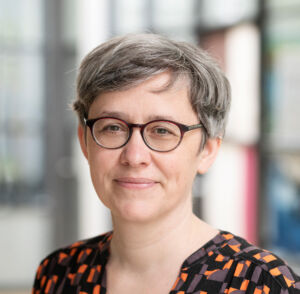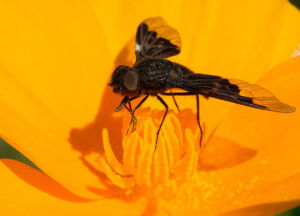Growing change: Promoting insect-friendly behaviour through gardening-framed interventions
Sarah Nieß et al.
SoCoDES investigates socio-ecological dynamics in the Anthropocene and focuses in particular on interactions between biodiversity and social developments.
The research project investigates the relationship between natural and societal processes. The resulting social-ecological dynamics are considered in particular in the context of the Anthropocene discourse. The Anthropocene shows that a clear distinction between “natural” and “human influenced” can no longer be made. Human actions and their impacts on nature become global and affect the entire Earth system. Unintended side-effects do not only influence ecosystems but also societies: there is no place on Earth that is not directly (e.g. land-use change) or indirectly (e.g. input of pollutants, nutrients) affected by human influence.
The aim of the project is to gain a better and broader understanding of the relationships between societal developments and biodiversity. The way society uses ecosystem services is shaped by societal developments and influences biodiversity via land use changes. Against the background of the Anthropocene, the circumstances of these relationships are changing: Human actions have a global impact, and unintended side effects not only impact ecosystems but also society.
In order to investigate these relationships in more detail, the first step is to conduct a systematic literature review on “Biodiversity and Demographic Change” to establish the current state of research and identify research gaps or future research questions. In addition, the research project conceptually reflects social-ecological biodiversity research in the context of the Anthropocene. For this purpose, a discussion paper “Biodiversity in the Anthropocene” will be developed. In addition, empirical studies deal with the symbolic and material dimensions of the perception, use and valuation of nature in the city and a possible (re)conceptualization of the relationship between biodiversity and society.
Ecological and societal changes not only affect the provision of ecosystem services, they also influence people’s needs and lifestyles. This results in far-reaching changes in the use of natural livelihoods. At the same time, changes in the quality and extent of ecosystem services can influence societal processes, such as increasing the trend toward urbanization. These interactions between demographic developments and biodiversity are referred to as social-ecological dynamics of ecosystem services. As different interest groups have different use claims on ecosystem services, conflicts can arise from these dynamics. This especially applies to urban areas, where social, ecological and economic conditions and demands change continuously and sometimes rapidly. However, the framework conditions of these dynamics are changing against the background of the Anthropocene. The debate on biodiversity conservation must therefore newly be conceptualized, as the supposed separation of nature and society dissolves: society is an integral part of nature, just as, conversely, nature cannot be understood without society. The relation between society and nature is central here. In the project SoCoDES, this relation is empirically investigated and conceptually reflected.
The research project SoCoDES is part of the cooperation with the Senckenberg Biodiversity and Climate Research Centre (SBiK-F). Within SBiK-F interdependencies between shifts in biodiversity and climate change are being investigated. ISOE is a founding partner of the research centre and coordinates the focal field of “Ecosystem Services and Climate”.
Sarah Nieß et al.
Julia S. Ellerbrok et al.
Marion Mehring et al.
Sarah Nieß
Vera Schreiner et al.
What are the causes of biodiversity loss? How can we protect biodiversity in the future? How can we create a willingness for change?
Go to Topic Page

